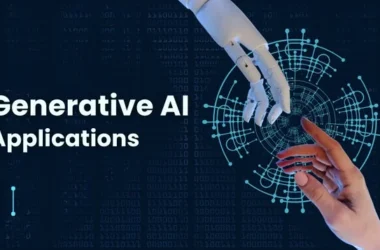Executive Summary:
The rapid development of Generative AI in Content Creation for content production creates significant ethical implications of generative AI that require serious thought. Misinformation, accountability, bias, intellectual property, and openness are just a few of the problems that must be addressed.
Introduction:
In content production, generative AI, a subfield of artificial intelligence, has made significant strides in recent years. Generative AI solutions have provided creative industries with new opportunities, from text production to graphics.
However, ethical considerations need to be taken into account with any potent technology. In this blog, we’ll examine the difficulties and obligations related to the usage of generative AI in content production, as well as their ethical implications.

Challenges of Generative AI in Content Creation:
- Ethical Implications of Generative AI:
The emergence of generative AI tools for content generation raises a number of ethical concerns. The potential for abuse or malicious intent, such as the production of deep fake content or the spread of false information, is one major cause for concern of the ethical implications of generative AI.
It can be difficult to distinguish between authentic and fake information when generative AI algorithms are used to produce persuasive and realistic material.
- Accountability and Responsibility:
Discussing the accountability and responsibility of those who develop and use generative AI solutions is crucial as they become more widely available. The designers of generative AI systems must think about the possible effects of their work and put safety measures in place to prevent misuse.
Additionally, authors that employ generative AI should follow the ethical implications of generative AI and make them apparent when they use AI-generated content.
- Intellectual Property and Plagiarism:
Generative AI brings up complex issues about intellectual property and plagiarism. There is a chance of unintentionally recreating copyrighted works without the required authorization when AI algorithms are trained on existing copyrighted material.
To ensure adherence to intellectual property rights and advance fair use principles, content producers and developers of generative AI must negotiate this moral and legal minefield.
- Bias and Representation:
Generative AI models are developed using sizable datasets, which may unintentionally include biases in the data. This may lead to the creation of biased content that reinforces discrimination or stereotypes.
Content producers and creators must actively address and mitigate these biases by utilizing various training datasets and ethical principles to encourage inclusive and representational content development.
- Transparency and Informed Consent:
The use of generative AI in content development raises issues concerning transparency and informed consent. It is essential to show that AI algorithms were used when sharing AI-generated content with the audience.
Users should be alerted that the content they encounter might not be real and equipped with the knowledge they need to assess its validity.
- Addressing Ethical Implications:
Several steps may be taken to address the ethical issues that arise when generative AI solutions are used to create content. The design and development of generative AI systems should prioritize ethical issues, including thorough testing and evaluation for potential biases and ethical violations.
By clearly attributing AI-generated material and encouraging responsible use, content producers should abide by ethical standards.
- Collaboration:
To address the moral implications of generative AI solutions, stakeholders such as developers, content producers, politicians, and ethicists must work together. Standards, rules, and regulations for the industry can be established to guarantee moral and ethical behaviour.
The creation of frameworks that strike a balance between innovation, creativity, and ethical issues will be made possible through regular discussion and idea sharing.
- Human Labor and Employment:
Automating jobs currently carried out by humans in content creation is a potential application of generative AI. While this might result in more effectiveness and productivity, it might also impact employment and job displacement.
The ethical implications of generative AI must be considered to achieve a just transition and assistance for employees impacted by the automation of content creation processes.
- Influence on users:
Generative AI can be used to produce personalized material that caters to unique interests and prejudices. The possibility of user manipulation and the development of echo chambers, where people are only exposed to content that supports their preexisting opinions, are raised by this.
To prevent undue influence or manipulation, it’s crucial to balance creating personalized material and promoting different viewpoints.
- Creative Ownership and Attribution:
Generative AI muddles the distinctions between creative ownership and attribution. Identifying the original creator or legitimate owner of something becomes difficult when AI algorithms are employed to make it.
Ethical considerations should be made in defining ownership rights, providing accurate credit, and safeguarding artists’ intellectual property in AI-generated content.
Conclusion:
A new era of content production has begun thanks to generative AI technologies, which provide unmatched creative opportunities. However, it is crucial to understand and deal with the ethical implications of generative AI. We can reduce the risks and assure the responsible and ethical use of generative AI in content production by strongly emphasising responsibility, transparency, diversity, and collaboration. By doing this, we can uphold our ethical obligations while embracing the possibilities of new technology.










